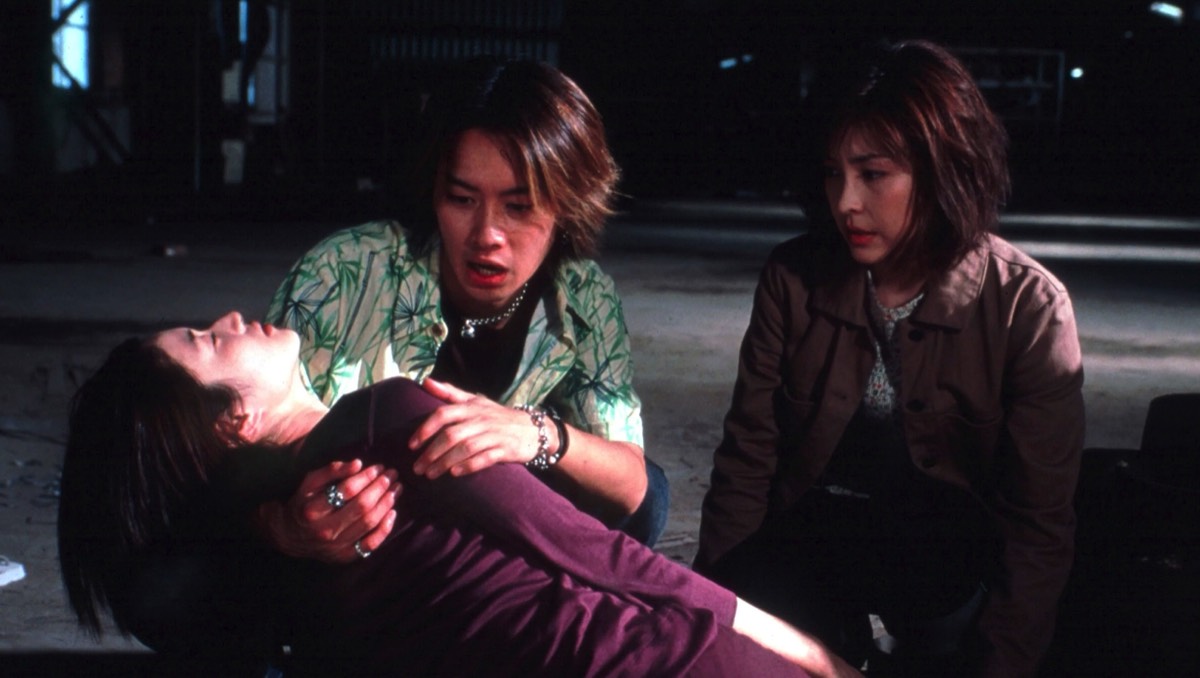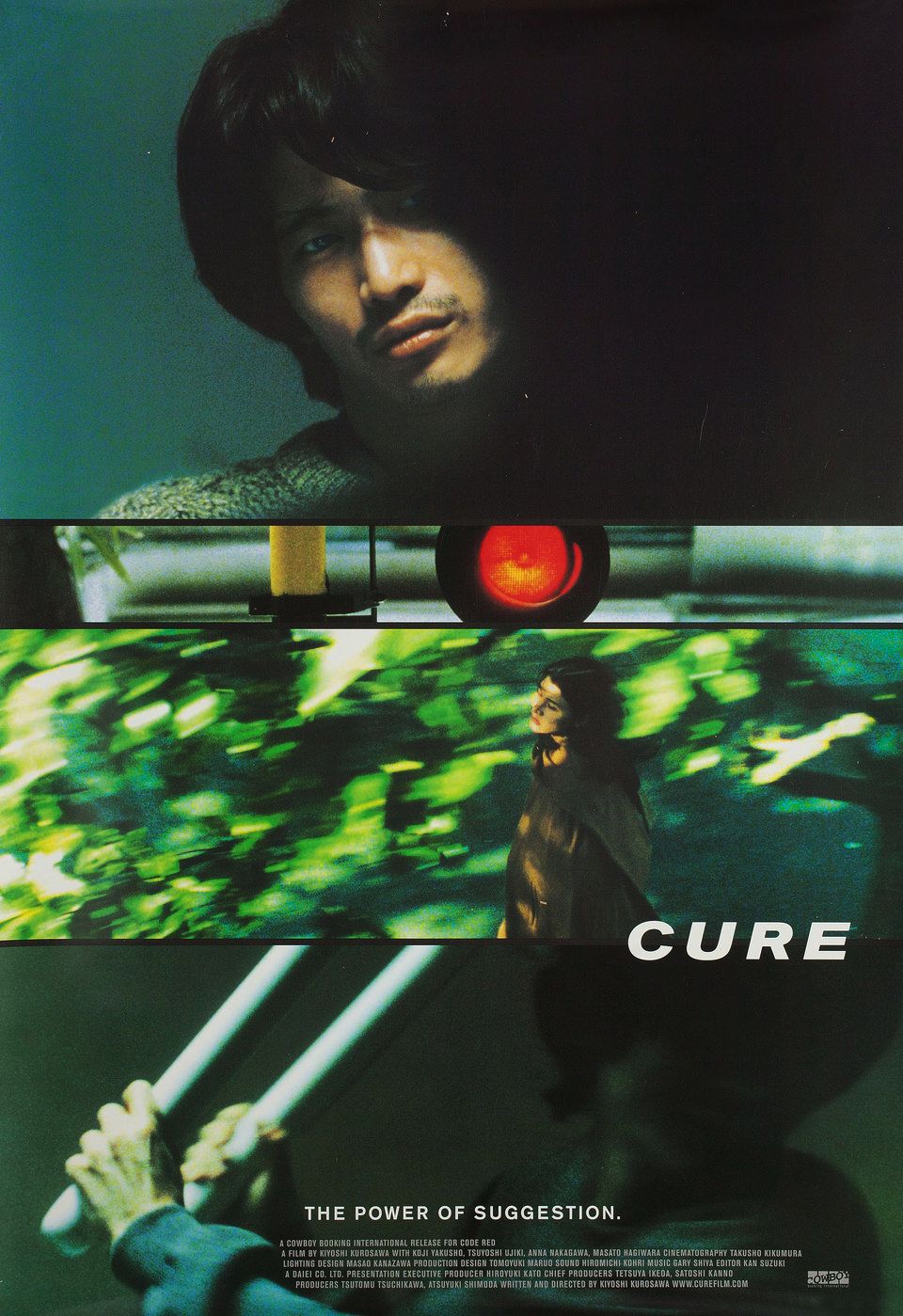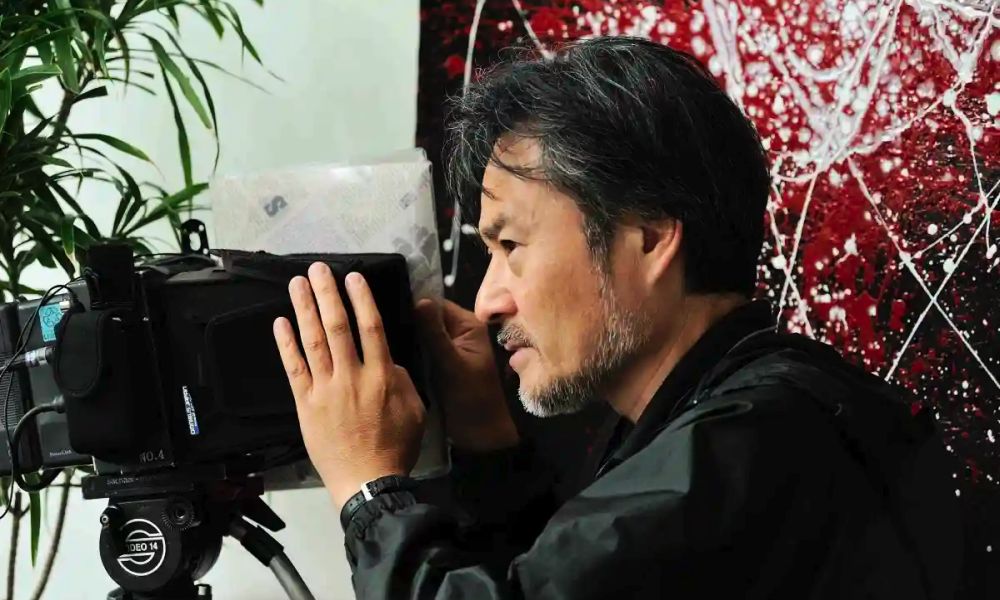"Of the directors who came to international prominence in the J-horror boom of the nineties, Kurosawa (no relation to Akira) is arguably the most talented and original… Despite the melodramatic and fantastic aspects of his stories, his real strength is in the delineation of character. His films contain consistently rich performances." - A Critical Handbook of Japanese Film Directors (Alexander Jacoby, 2013)
Kiyoshi Kurosawa
Director / Screenwriter
(1955- ) Born July 19, Kobe, Japan
(1955- ) Born July 19, Kobe, Japan
Key Production Country: Japan
Key Genres: Drama, Thriller, Horror, Psychological Thriller, Psychological Drama, Mystery, Science Fiction, Family Drama, Crime Thriller, Crime
Key Collaborators: Atsuyuki Shimoda (Producer), Koji Yakusho (Leading Character Actor), Tomoyuki Maruo (Production Designer), Akiko Ashizawa (Cinematographer), Kôichi Takahashi (Editor), Norifumi Ataka (Production Designer), Shô Aikawa (Leading Character Actor), Ren Ôsugi (Leading Character Actor), Gary Ashiya (Composer), Yûsuke Hayashi (Composer), Teruyuki Kagawa (Leading Actor), Kyôko Koizumi (Leading Actress)
Key Genres: Drama, Thriller, Horror, Psychological Thriller, Psychological Drama, Mystery, Science Fiction, Family Drama, Crime Thriller, Crime
Key Collaborators: Atsuyuki Shimoda (Producer), Koji Yakusho (Leading Character Actor), Tomoyuki Maruo (Production Designer), Akiko Ashizawa (Cinematographer), Kôichi Takahashi (Editor), Norifumi Ataka (Production Designer), Shô Aikawa (Leading Character Actor), Ren Ôsugi (Leading Character Actor), Gary Ashiya (Composer), Yûsuke Hayashi (Composer), Teruyuki Kagawa (Leading Actor), Kyôko Koizumi (Leading Actress)
"Kiyoshi Kurosawa is Japanese cinema's foremost enigmatist. He has flirted with Western fame since the release of his warped cop thriller, Kyua (1997) (Cure), but his movies are too unapologetically oblique to ensure mainstream appeal. Despite a predilection for pulp, and occasional forays into J-Horror, Kurosawa is a versatile, delightfully morose satirist and an adventurous stylist who consistently scares the bejuses out of his audiences. Only the haunted house shocker Suito homu (1989) (Sweet Home) and Kairo (2001) (Pulse) indulge in stock-genre shenanigans. His customary palette inclines more toward uneasy ambient sounds, hypnotic pacing, and jumbled, fuguelike narratives." - Matt Hills (501 Movie Directors, 2007)
"One of the greats of contemporary Japanese cinema, Kiyoshi Kurosawa is one of those rare filmmakers whose work straddles wildly differing genres yet remains bound together by common threads. Winner of the best director award at the Venice Film Festival 2020 for his period espionage drama Wife of a Spy, Kurosawa was known initially as a proponent of the horror genre, his first films coinciding with the turn of the millennium wave of J-horror. Yet even his early work blends and bends genre. Horror and thriller merge into a psychological pastiche, while the supernatural manifests itself in both his horror films and his more arthouse-oriented releases." - Sonali Joshi (BFI, 2020)

Pulse (2001)
"Drawing comparisons to filmmakers such as Yasujirō Ozu, Andrei Tarkovsky, Alfred Hitchcock, and Stanley Kubrick, Kiyoshi Kurosawa has developed a wholly unique style and impressive oeuvre in his four decades as a filmmaker. Although he has been celebrated for his work across a broad range of genres, his influence on international cinema is most strongly tied to his groundbreaking approach to horror. Making his feature film debut in the early 1980s fresh out of Rikkyo University in Tokyo, Kurosawa experimented with exploitation films and low budget direct-to-video horrors before skyrocketing to international acclaim with his 1997 horror crime film Cure." - American Cinematheque, 2021
"Kiyoshi Kurosawa's films are unique in the film world. They are genre flicks that seem to defy the confines of genre. They are philosophical treatises on the individual in society, often as brilliant as they are obscure, though they still manage to thrill, amuse, and entertain. Widely regarded as one of the most talented filmmakers of New Japanese Cinema (other such directors include Shinji Somai, Takashi Miike, and Nobuhiro Suwa), Kurosawa is a bold new voice in World Cinema." - Allmovie
"The magical world of horror cinema is infinitely nuanced, allowing filmmakers to approach the frameworks of the genre in so many innovative ways. While it’s only natural for artists to draw inspiration from each other, nobody does horror quite like Japanese auteur Kiyoshi Kurosawa. Lovingly dubbed the “David Cronenberg of Japan”, Kurosawa has impacted the genre in numerous ways through masterpieces such as Pulse." - Swapnil Dhruv Bose (Far Out Magazine, 2023)
"Modelling his early films on the works of John Cassavetes, Alfred Hitchcock and John Carpenter, Kurosawa would become known in the late 1990s for a palpable sense of foreboding in a series of genre-defying crime and horror features. Elevating himself from a fledgling career in pink films and straight-to-video schlock, his tense camerawork and methodical pacing in these films transformed simple mystery narratives in something much eerier and more thought-provoking. Imbuing his films with a lingering sense of unease, minimal works like Cure and Pulse would become cult classics of Y2K Japanese cinema, as their nuanced explorations of the vulnerabilities of the human condition resonated with audiences at home and abroad." - James Balmont (AnOther Magazine, 2020)
"Whether my material is human beings or landscape or cityscape, each time it winds up either gently undermining the rules of the genre or oddly enough, in unexpected ways making them work." - Kiyoshi Kurosawa (BOMB Magazine, 2005)
"Films are not an individual process, they are collaborative. More often we make the films we can make, not the ones we want to make. If we’re lucky, once in a while the creative process transforms it into the film that you want to make." - Kiyoshi Kurosawa, 2019
Selected Filmography
{{row.titlelong}}
GF Greatest Films ranking (★ Top 1000 ● Top 2500)
21C 21st Century ranking (☆ Top 1000)
R Jonathan Rosenbaum S Martin Scorsese
21C 21st Century ranking (☆ Top 1000)
R Jonathan Rosenbaum S Martin Scorsese
Kiyoshi Kurosawa / Favourite Films
The Ballad of Cable Hogue (1970) Sam Peckinpah, The Boston Strangler (1968) Richard Fleischer, Détective (1985) Jean-Luc Godard, A History of Violence (2005) David Cronenberg, Night and Fog in Japan (1960) Nagisa Oshima.
Source: Le CiNéMa Club (2020)
See more of Kiyoshi Kurosawa's favourite films at La Cinetek (2016).
The Ballad of Cable Hogue (1970) Sam Peckinpah, The Boston Strangler (1968) Richard Fleischer, Détective (1985) Jean-Luc Godard, A History of Violence (2005) David Cronenberg, Night and Fog in Japan (1960) Nagisa Oshima.
Source: Le CiNéMa Club (2020)
See more of Kiyoshi Kurosawa's favourite films at La Cinetek (2016).
Kiyoshi Kurosawa / Fan Club
Bong Joon-ho, Filipe Furtado, Ryan Swen, Ryusuke Hamaguchi, Adam Nayman, Jasper Sharp, David Jenkins, B. Kite, Shigehiko Hasumi, Logan Kenny, Jean-François Rauger, Steve Erickson.
Bong Joon-ho, Filipe Furtado, Ryan Swen, Ryusuke Hamaguchi, Adam Nayman, Jasper Sharp, David Jenkins, B. Kite, Shigehiko Hasumi, Logan Kenny, Jean-François Rauger, Steve Erickson.
"Fan Club"
These film critics/filmmakers have, on multiple occasions, selected this director’s work within film ballots/lists that they have submitted.
These film critics/filmmakers have, on multiple occasions, selected this director’s work within film ballots/lists that they have submitted.


